Roots
Table of Contents
- The Haitian Revolution as a Beacon of Light
- The Power of his African Ancestry
- Mother and Father as Political Refugees
- Being false arrested by the Elizabeth Police Department
- Getting Caught in Hurricane Katrina
- Witnessing his college friend losing her brother in war
- Pilgrimage to Palestine: Seeing Through the Propaganda
- The Fire That Changed Everything
- Ruben Change His Life
Roots Profile
Archange Antoine descends from powerful African empires and is a son of Black revolutionary struggles spanning continents and centuries. Rooted in the Haitian Revolution against imperialism, West African resistance to enslavement, and African American fight against systemic oppression, he draws strength from those ancestors who united to win freedom. His pursuit of justice, commitment to social change, and desire for collective liberation are fueled by personal trauma that teaches him love and care for others..
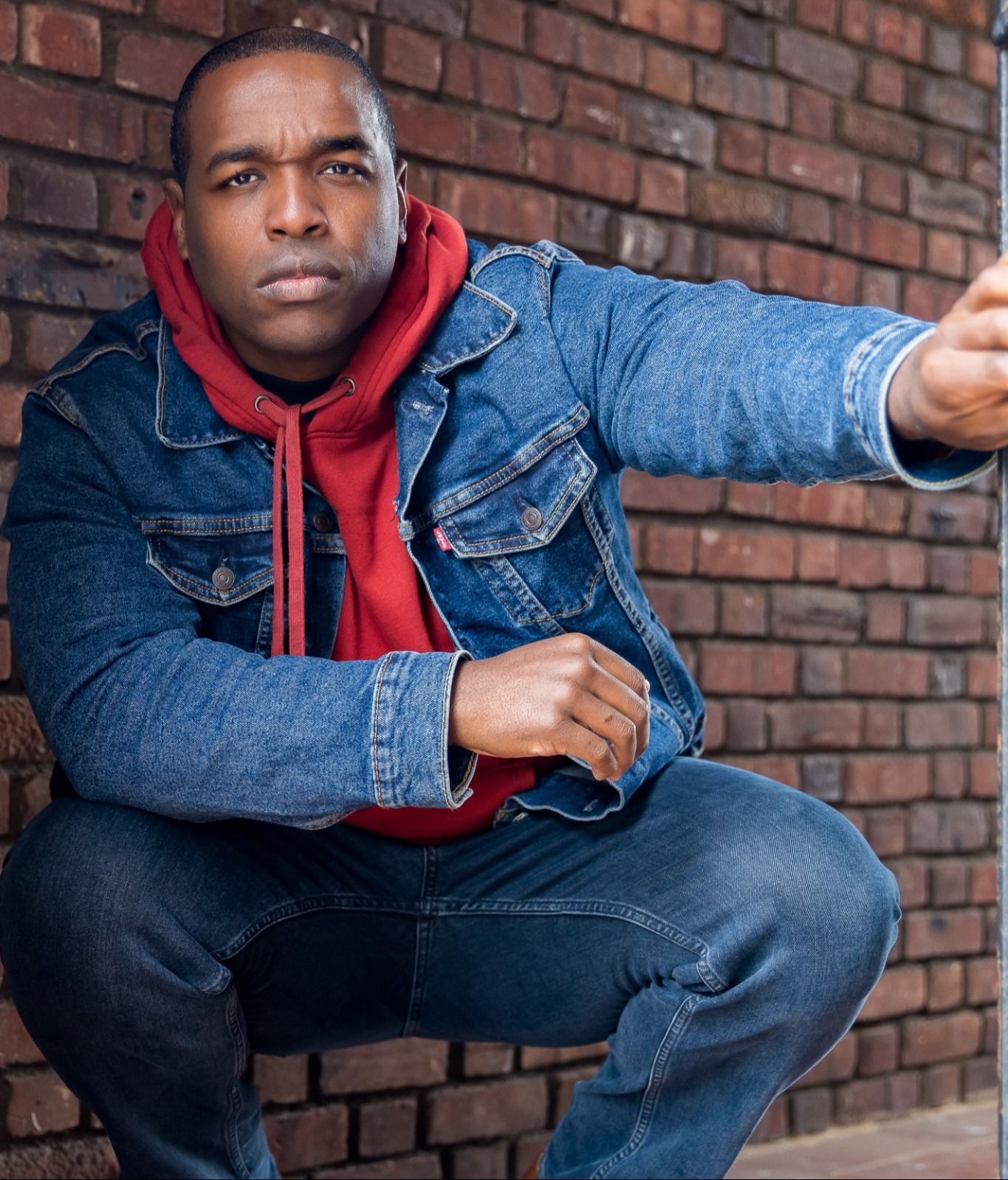
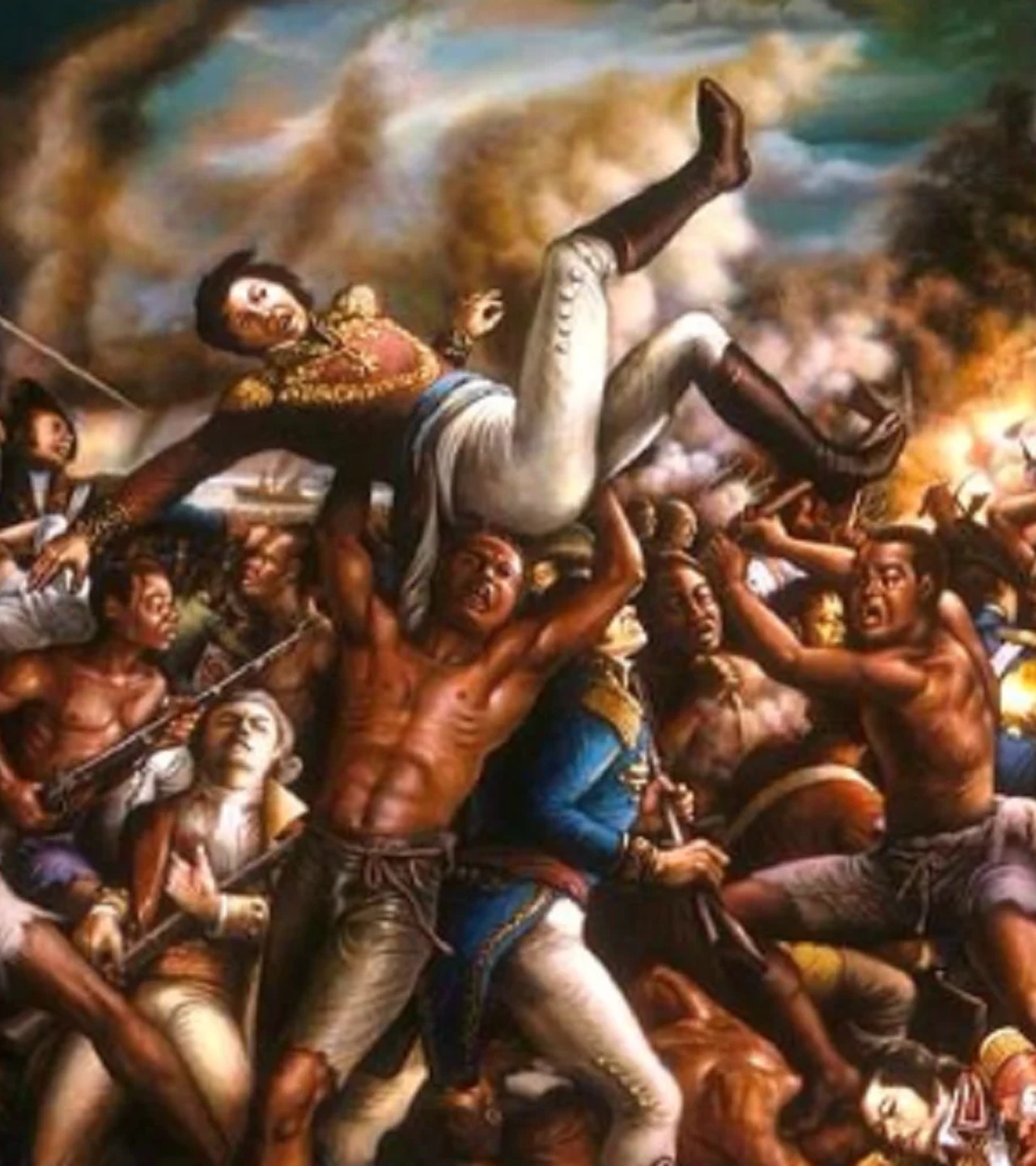
The Haitian Revolution as a Beacon of Light
In moments of trial and tribulation, it is easy to adopt a victim’s mindset—to believe that victory against injustice is impossible, and that resistance is futile. But Archange draws strength from the revolutionary spirit of his Haitian ancestors, who refused to accept subjugation as their fate. Enslaved but not broken, they united with others across plantations and colonies, strategized in secret, and fought with unyielding courage to liberate themselves from systemic oppression and state violence. Their brilliance, their might, and their unwavering faith in God fueled a movement that defeated some of the world’s most powerful empires—empires that sought to exploit their labor and erase their humanity.
The Haitian people modeled a radical and visionary form of internationalism. They fought alongside Dominicans to drive out Spanish rule, welcomed Polish soldiers who defected from Napoleon’s army to resist French colonialism, supported Simón Bolívar in the fight against Spanish elites across South America, and opened their shores to formerly enslaved Africans from the United States seeking refuge and freedom. Haiti’s revolution was never just for Haiti—it was a beacon of possibility for all oppressed peoples around the globe. Archange carries that spirit forward today. He believes in building solidarity across movements, borders, and identities to advance human dignity, global justice, and collective liberation.
Although they took deep pride in their African ancestry, Haiti’s revolutionaries also honored their connection to the Taíno—the Indigenous people of the land. In an act of remembrance and respect, they chose to name the new nation “Haiti,” a word from the Taíno language meaning “land of mountains.” This legacy continues to shape Archange’s worldview, instilling in him a deep reverence for Indigenous sovereignty and the sacred memory of the first peoples of the Americas.
The Power of his African Ancestry
Archange holds deep admiration for the brilliance, resilience, and legacy of his African ancestors—whose ingenuity, strength, and revolutionary spirit continue to inspire him daily. Knowing that his ancestors helped shape every sector of human civilization—science, governance, philosophy, agriculture, spirituality, art—fills him with pride and purpose. Their lasting contributions to the world are not distant memories; they are a call to action, reminding him of the greatness he carries in his DNA and the responsibility to build upon that legacy.
Tracing his roots to West Africa ignited a lifelong commitment to studying the progress, achievements, and enduring influence of African civilizations. From the Ancient Egyptian Empire, Kingdom of Kush, and Aksumite Empire to the Carthaginian Empire, Ghana Empire, Mali Empire, Songhai Empire, Kingdom of Kongo, Kilwa Sultanate, Mutapa Empire, and Great Zimbabwe, these empires remind him that Africa has always been a cradle of power, intellect, and innovation.
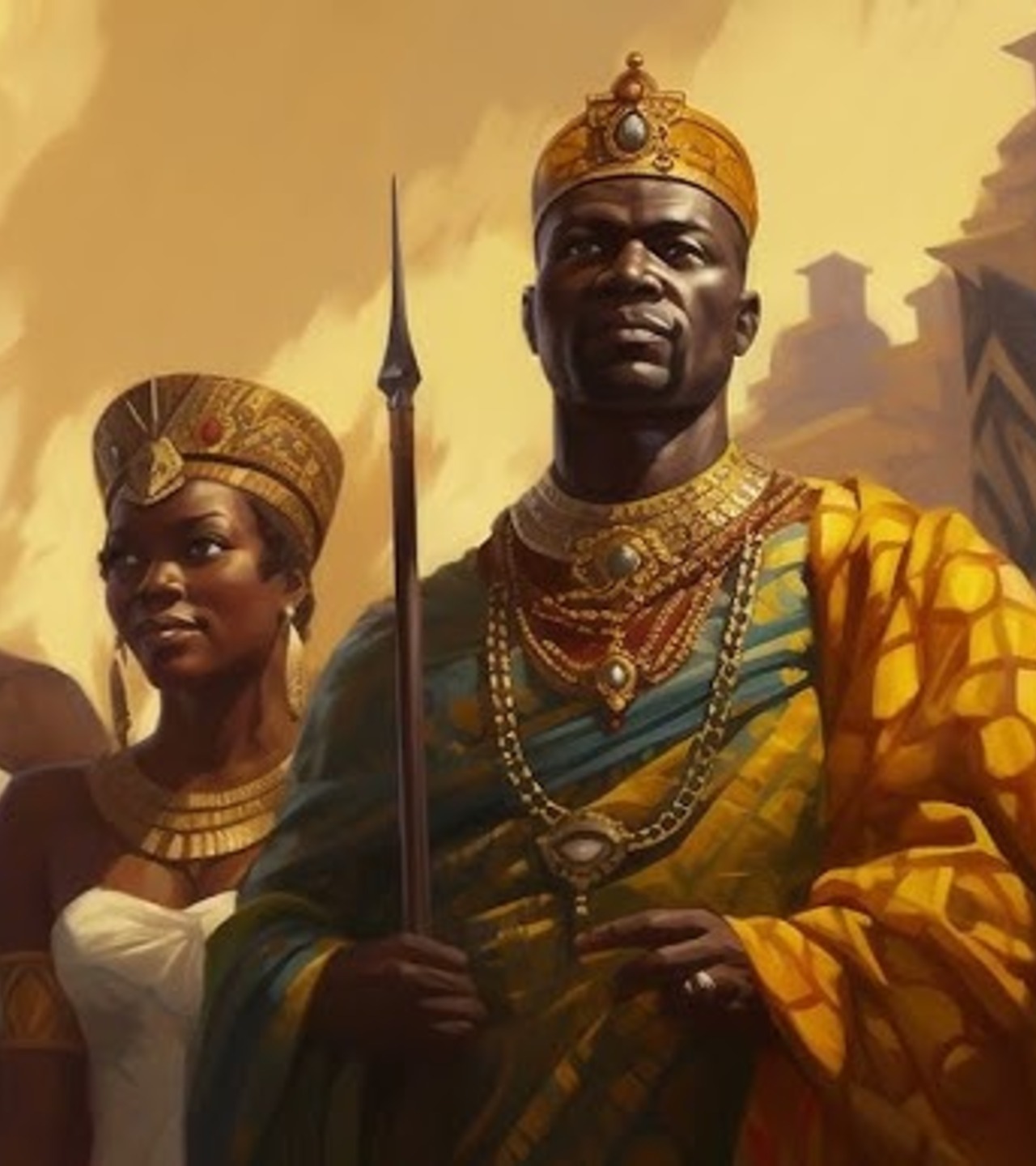
Now more than ever, Archange believes the African diaspora must unite, reconcile, and heal from centuries of psychological warfare waged against our communities. Despite our diverse cultures, languages, and beliefs, we must commit to a shared vision: an Africa that is truly free—free from neocolonialism, free from postcolonial gatekeepers, and free from Western imperialism. A strong, sovereign Africa won’t just inspire pride—it will become a global force capable of protecting, defending, and advocating for Black people everywhere. When Africa rises, Black people across the globe will feel the tremors of our collective liberation—a liberation not just of land, but of mind, spirit, and destiny.
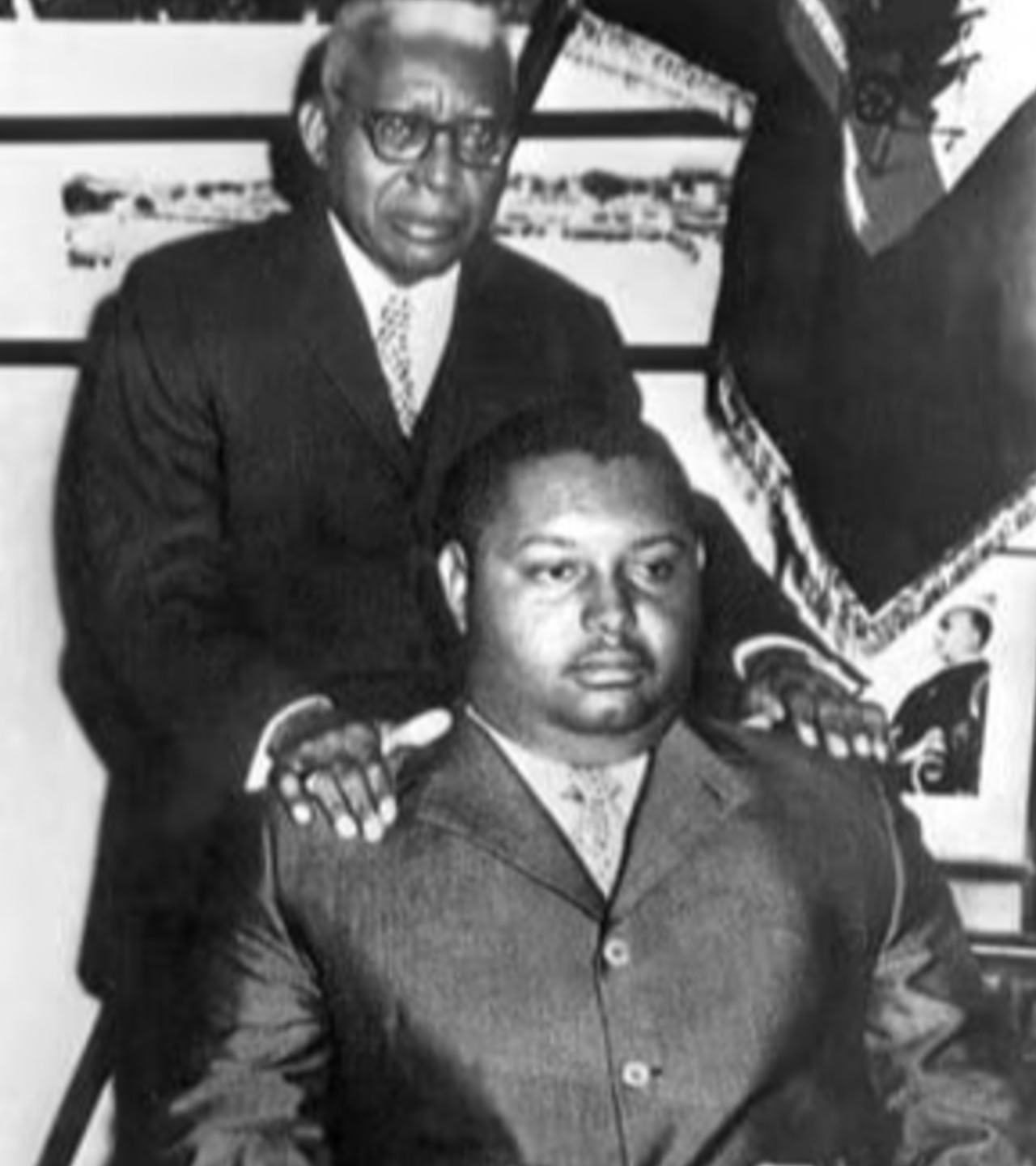
Mother and Father as Political Refugees
Archange’s parents were born in Haiti during the brutal dictatorship of François “Papa Doc” Duvalier, a regime that ruled through terror, surveillance, and extrajudicial violence. Propped up by the United States in the name of anti-communism, the Duvalier regime was responsible for the deaths of over 60,000 people—many of them educators, clergy, journalists, and community organizers. Among those victims was Archange’s great uncle, Napoleon Antoine, a devoted community leader who was arrested, targeted, and ultimately killed for daring to speak out against the state’s unchecked brutality. His death was not just a family tragedy—it became a generational marker in a legacy of resistance.
Most of Archange’s family eventually fled Haiti as political refugees, seeking safety beyond the reach of authoritarian rule. But their survival came with a heavy awareness: governments can and will weaponize power to strip people of their dignity, rights, and protections. That awareness shaped Archange from a young age. It gave him a moral compass grounded in vigilance, truth-telling, and a refusal to accept state-sanctioned violence as inevitable.
That legacy continues to inform his worldview. It’s why he challenges people to ask deeper questions—especially when it comes to immigration: Why are so many families forced to flee their homelands in the first place? Behind today’s migration crises lies a long and painful truth about U.S. foreign policy: coups, military invasions, economic sabotage, and systematic destabilization across Latin America, Africa, and the Caribbean. These are not distant histories—they shaped Archange’s own family’s journey and continue to shape the injustices facing the world today.
Being false arrested by the Elizabeth Police Department
Archange’s commitment to police accountability, transparency, and systemic transformation is deeply personal. As a young man, he was falsely arrested by the Elizabeth Police Department—an experience that shaped his lifelong mission. Later, investigative reporting by The New York Times revealed that a rogue unit within the department, known as “The Family,” had been routinely planting drugs and fabricating charges against Black and Latino youth in the community.
Although Archange ultimately won his case and all charges were dropped—thanks in part to mounting federal pressure on the department—it was a sobering reminder: the police do not exist above the people; they are public servants, and it is the duty of the people to hold them accountable. His case wasn’t just an isolated incident—it was part of a broader pattern of systemic abuse.
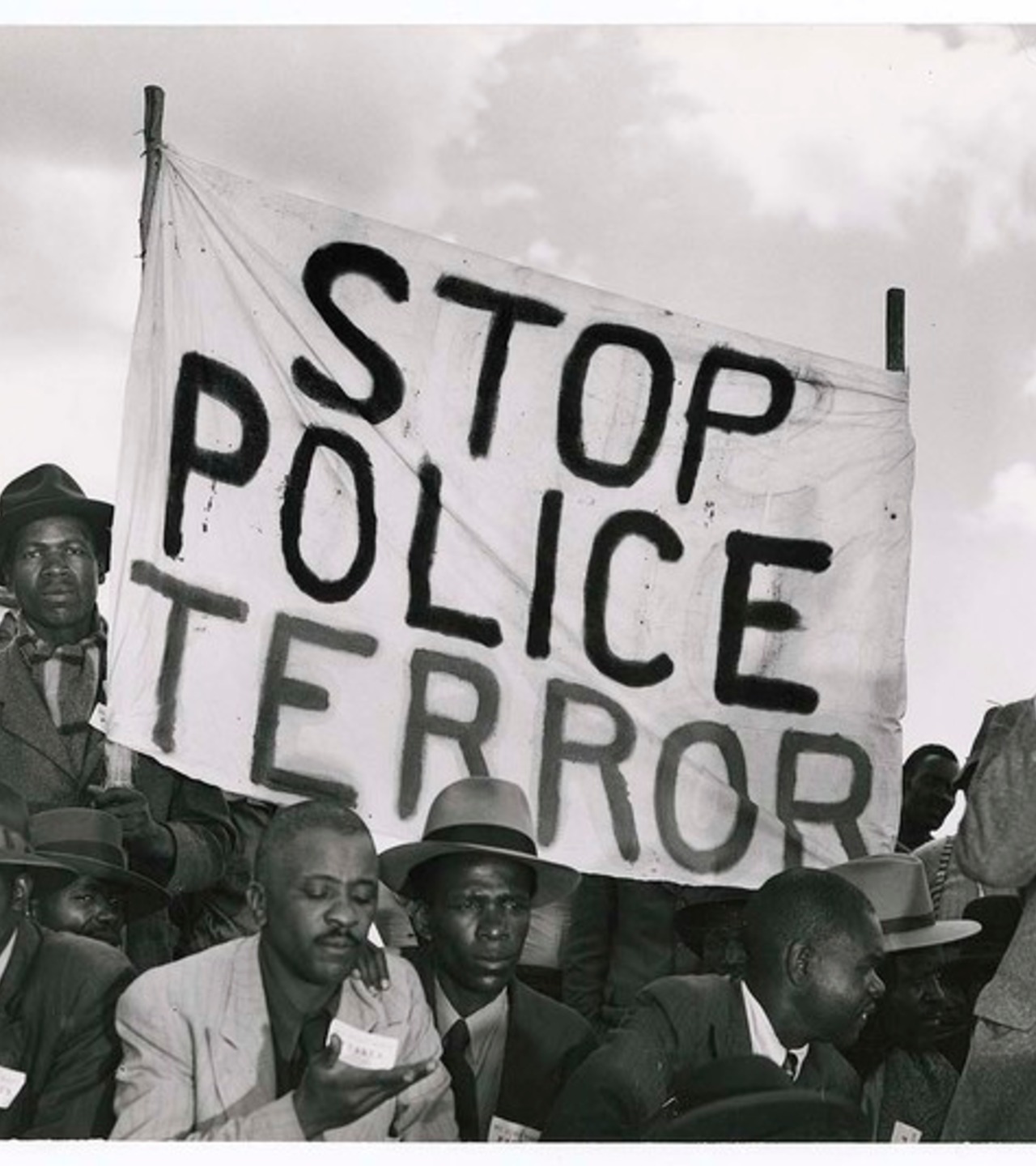
That experience lit a fire in him. Today, Archange teaches others about the true history of policing—its origins as slave patrols in the American South, created to capture and control enslaved Africans, and its later role in surveilling and suppressing growing Black and Mexican communities in the North. He challenges the myth that police exist to protect everyone equally. In reality, law enforcement in America was designed to protect property, preserve the status quo, and defend the interests of the wealthy and powerful.
Archange believes public safety must be reimagined—from the ground up. It should be driven by the people, not controlled by institutions that have long harmed our communities. He works to empower others to demand a system rooted in justice, dignity, and collective care—because true safety starts with accountability and equity, not fear and force.
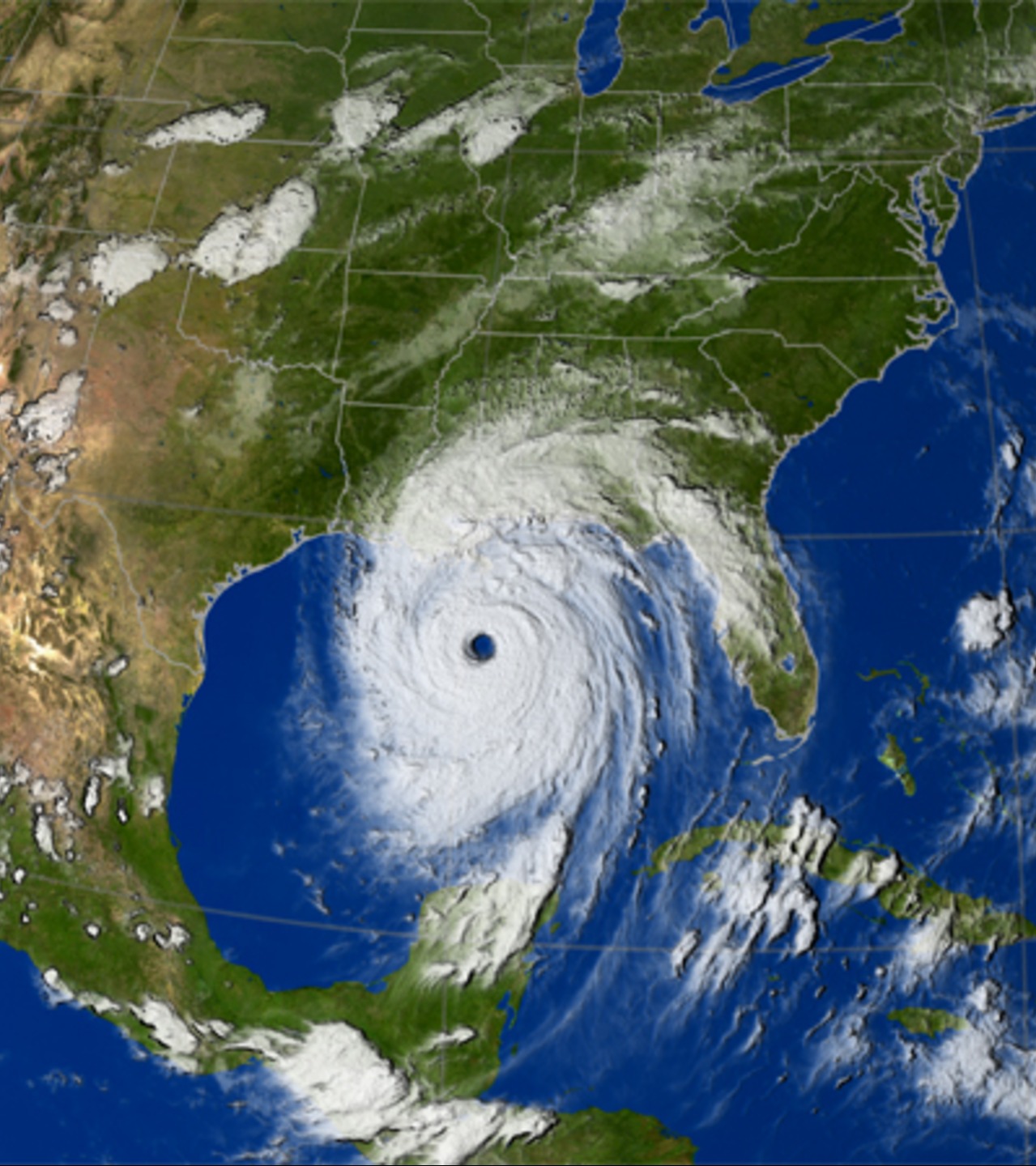
Getting Caught in Hurricane Katrina
Archange had just been accepted into the graduate program at the University of New Orleans. He moved to the city full of hope, eager to begin the next chapter of his life. But only three weeks in, Hurricane Katrina approached—and the storm would mark him forever.
Although Archange was able to leave New Orleans just before Katrina made landfall, he was almost among the thousands trapped in its deadly aftermath. He came dangerously close to staying, unsure if the warnings were real or exaggerated. Many of his friends and classmates remained behind and had to be rescued by boat or helicopter, some from rooftops, others from flooded buildings. He made it to Dallas, Texas, where he and several others found temporary shelter in a hotel—until the money ran out. That’s when a local church stepped in to help, paying for additional nights and offering meals, clothing, and care.
Even as he escaped the physical devastation, the emotional toll was overwhelming. Watching the images unfold—Black families wading through chest-deep water, elders abandoned in wheelchairs, children crying for help—Archange realized just how deeply systemic racism shaped this tragedy. The slow response. The criminalization of Black survival. The failure to prioritize rescue efforts. And perhaps worst of all, the media and government officials calling Black Americans like him refugees in their own country. That word carried violence. It made clear that Black lives—even in crisis—were still viewed as foreign, disposable, or outside the boundaries of national concern.
Katrina didn’t just expose the failures of an incompetent government; it revealed the enduring legacy of anti-Blackness embedded in America’s policies, priorities, and institutions. It was a painful lesson in the power of government—and what happens when that power is unaccountable, unprepared, or uninvested in Black communities.
When Archange returned home to New Jersey, he carried that grief, but also a new fire. He began speaking publicly about his experience and the urgent need for political leaders of character and conscience. He became an advocate for communities often ignored by the systems meant to serve them. That experience solidified his lifelong commitment to building a government that protects the most vulnerable, centers racial equity, and answers to the people—not to profit, power, or party
Witnessing his college friend losing her brother in war
In college, Archange witnessed a close friend lose her brother in the Iraq War. The grief shattered her family, and the experience left a mark on Archange that he could never forget. Later, he learned that several of his friends had been deployed to Iraq and Afghanistan—some had lost fellow soldiers, others returned home carrying visible and invisible wounds.
What haunted him most was the question no one seemed able to answer: Why were we in Iraq and Afghanistan in the first place? That question consumed him, driving him to seek out the truth. As he dug deeper and joined anti-war movements, he came to understand the machinery behind the headlines—the vast reach of American imperialism, the sprawling network of U.S. military bases across the globe, and a military-industrial complex that profits from endless war.
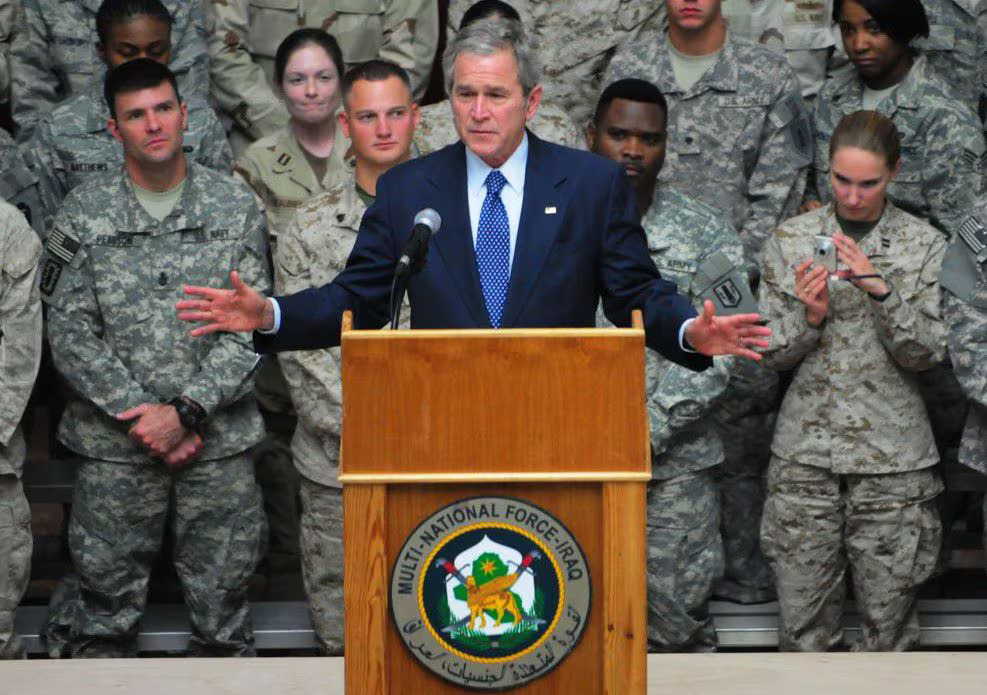
Archange’s anti-war stance isn’t abstract—it’s rooted in the faces and stories of people he loved. It’s the funerals he attended, the broken families left behind, and the deep betrayal felt when the wars were exposed as lies fueled by corporate greed and geopolitical dominance. Today, he teaches others about how the U.S. government spends billions in taxpayer dollars to fund wars that enrich private defense contractors while killing innocent civilians and sending working-class soldiers to die for interests that rarely serve the people.
There is nothing noble about war when it is driven by profit and propped up by lies. For Archange, being anti war is about protecting life, honoring truth, and demanding a foreign policy that centers peace, diplomacy, and justice—not domination and death. His journey eventually took him beyond the borders of the United States, where he stood in solidarity with student protesters in Hong Kong resisting repression by the Chinese government, supported young activists in Nigeria after their government murdered unarmed students, and spoke out against U.S. involvement in the destabilization and assassination of Haiti’s president. Each of these moments deepened his commitment to challenging empire in all its forms and to building a world where the preservation of human life always outweighs the pursuit of power.
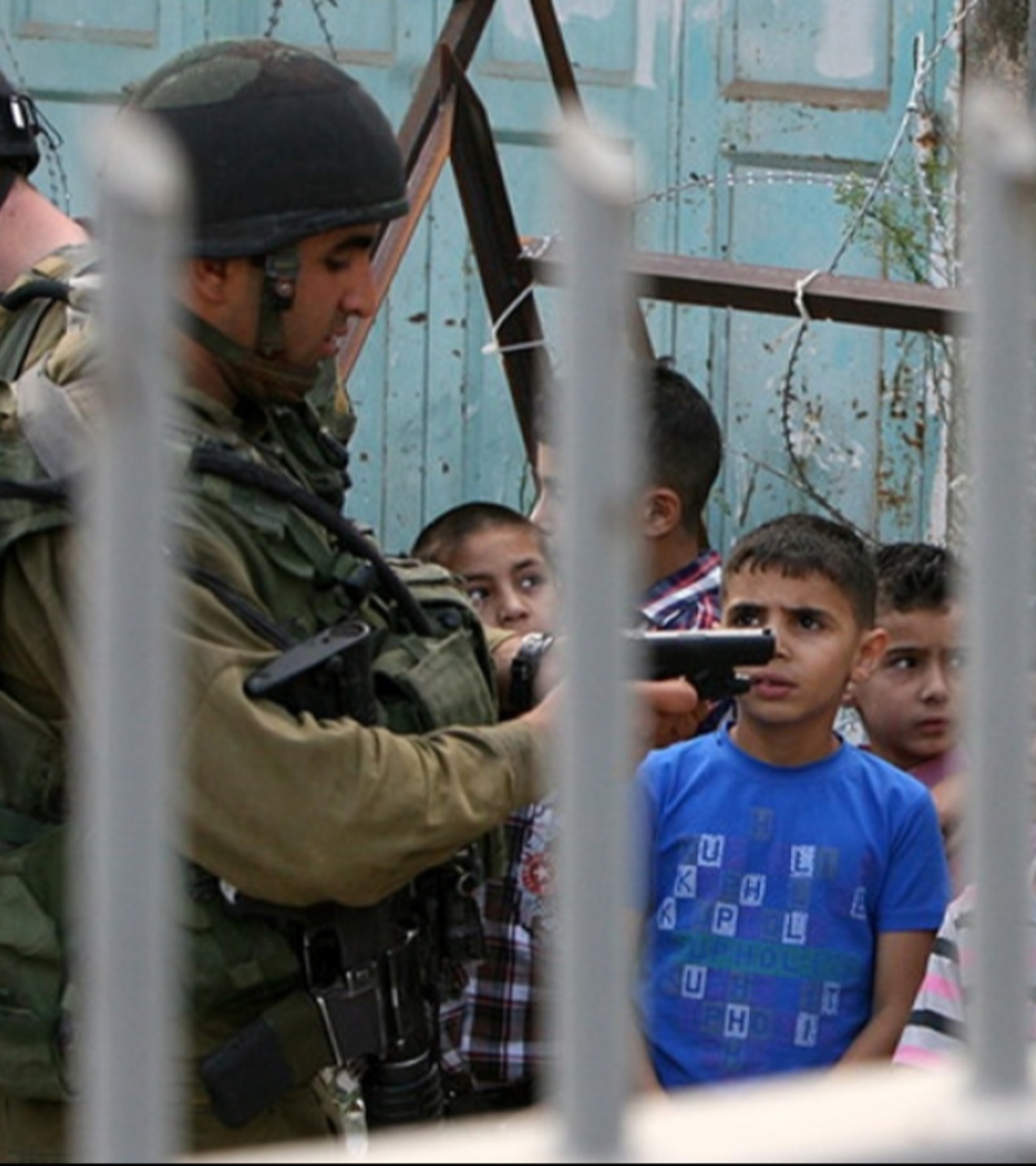
Pilgrimage to Palestine: Seeing Through the Propaganda
We have all heard of the Palestinian crisis and the many versions of their struggle for dignity and justice—stories told and retold, distorted through media and political spin. But when the genocide in Gaza began, Archange knew he could not just stay in the United States lobbying and advocating from a distance. He felt a deep calling to be present with the Palestinian people. He joined a pilgrimage with other Black faith leaders to hear directly from Palestinians and Israelis who were challenging the Israeli government’s occupation and demanding compliance with international law.
That journey shattered illusions. He saw firsthand how propaganda works—not just in Israel, but in the United States—to confuse the public, distort reality, and turn victims into enemies. It was a sobering reminder of how powerful narratives can be weaponized to silence the oppressed and justify unspeakable violence. And he knows this truth deeply as a Black man in America who constantly faces the lies and deceit of false narratives.
Though he was not in Gaza, every Palestinian he met spoke about the devastation and loss caused by the bombings. The pain and fear traveled far beyond the borders of Gaza, reaching families and communities in Jerusalem and the West Bank, where violent settler displacement was actively taking place. What gave people strength was not the international institutions or world governments—it was each other. As neighborhoods were demolished and families torn apart, it was community that held people together.
One of the most powerful images from the trip was seeing Israeli citizens standing in solidarity with Palestinians—risking their reputations, their freedom, and in some cases even their lives to speak out against injustice. That kind of courage and moral clarity moved Archange deeply. It reminded him that the coalitions we build across communities and lines of difference are the greatest threat to empire and oppression. It is the same collective energy he hopes to build in the United States to ensure Palestine will be free—and to end the outrageous use of U.S. tax dollars to fund the murder and mass killing of innocent people.
The Fire That Changed Everything
When Archange was a child, his apartment building caught on fire, leaving his family suddenly homeless. In an instant, everything they had—their belongings, their sense of stability, their home—was gone. They were forced to move from place to place, relying on the kindness of relatives, neighbors, and the Red Cross just to get by. It was a deeply humbling experience, one that marked him forever.
But amid the loss and upheaval, something powerful took root. Archange began to understand the true value of community—that it is not just where we live, but who shows up when everything falls apart. He saw firsthand how safety nets, public services, and the generosity of others could make the difference between despair and survival. That experience awakened a lifelong commitment to helping people in moments of crisis, especially those society so often forgets.
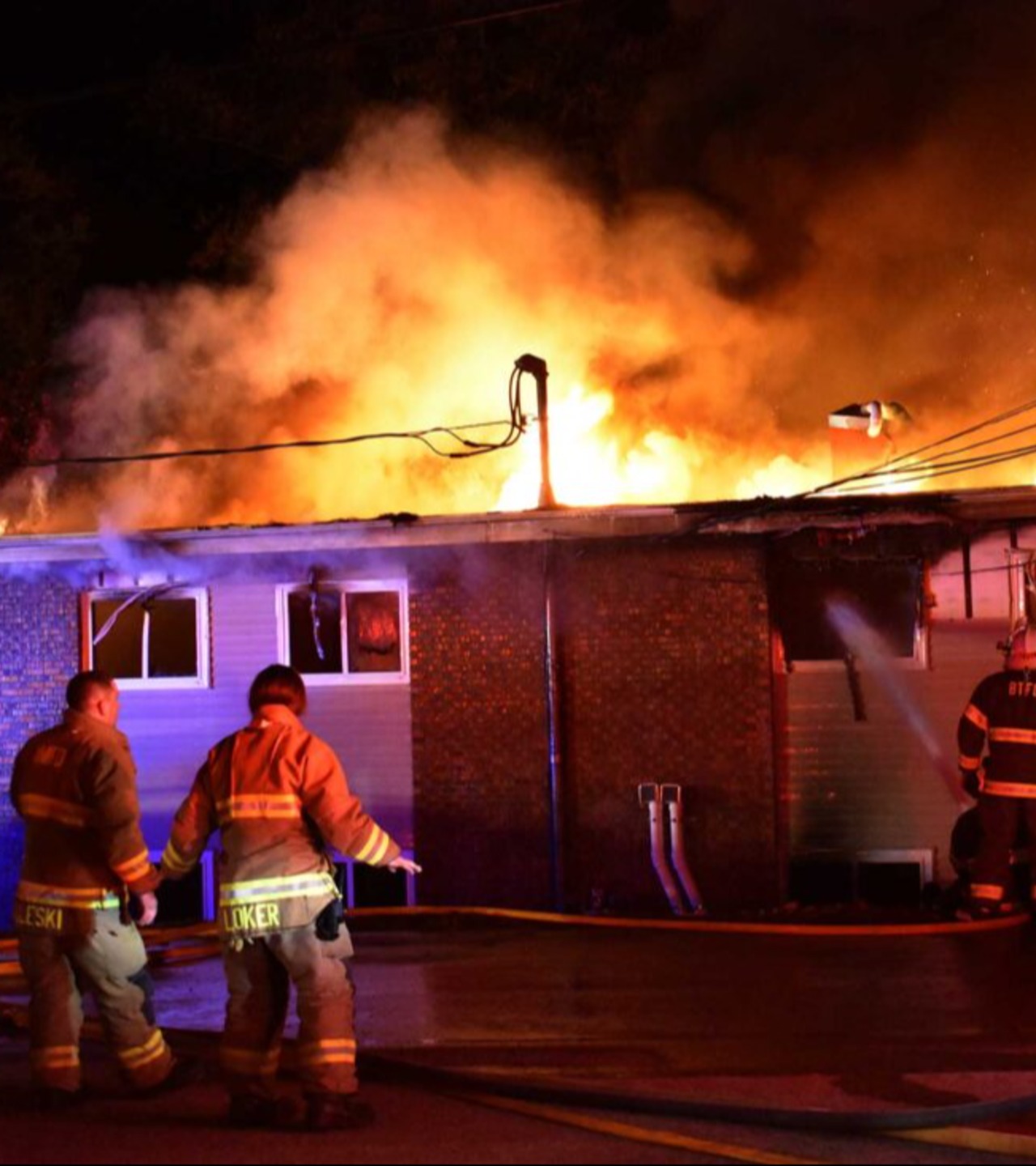
After graduate school, Archange chose to volunteer with Covenant House, working in both the legal services and pastoral care departments. The mission was clear: to support homeless and at-risk youth with dignity and compassion. For him, it was more than just charity—it was an act of justice. His own experience taught him that care must never be conditional. Not on religion. Not on politics. Not on gender, sexual orientation, or immigration status. No one should have to prove they are worthy of help. Being in need is enough.
Archange believes that compassion should be at the center of public life—that government, institutions, and individuals alike have a moral responsibility to act. We must build a society where support is not a privilege, but a right. Where community means showing up for one another not only in times of celebration, but in times of crisis. Where we give, not because people meet our standards, but because they are human.
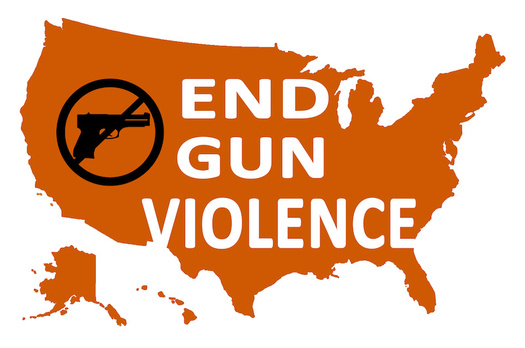
Ruben Change His Life
Ruben was a young man Archange first met while working at the Youth Advocate Program. Their relationship quickly deepened from mentor and mentee to something more like a big brother and little brother bond. When they met, Ruben was not doing well in school, struggling with reading comprehension, and frequently clashing with peers. His home life had also become unstable, and he had recently moved from Newark to live with his grandmother in Irvington. Despite these challenges, Ruben showed incredible resilience. He listened, took advice seriously, worked on his literacy every day, and even began attending therapy alongside his grandmother, which helped strengthen their relationship. He progressed so much that his probation officer gave Archange more flexibility in how they stayed in contact.
Though Ruben lived in a neighborhood marked by violence and hardship, he never wanted to be caught up in the streets. He often told Archange that he just wanted a regular job, to earn his own money, take his friends out, and live a normal life. Their mentoring relationship became part of his daily routine—searching for jobs, joining Archange in community work, going to the movies, and celebrating his small victories at school and at home over meals. Ruben’s dreams were simple: safety, stability, and joy.
One evening, while Archange was returning home from a friend's house, he received a phone call from Ruben’s grandmother. She was crying as she broke the news that Ruben had died in a tragic incident involving a gun while spending time with friends. The news shattered him. Archange sat with the family in their grief, traumatized, heartbroken, and shaken. Ruben was more than a mentee. He was his little brother.
That moment changed the course of his life. While he remained committed to working with families one on one, Archange came to believe that real change required transforming the conditions that shaped people’s lives. If Ruben’s neighborhood had been safer, and if his economic situation had offered more stability and opportunity, he might still be alive. In the aftermath of that loss, Archange shifted his focus from direct social work to community organizing. He committed himself to building coalitions and advocating for policy change that addresses the root causes of poverty, violence, public safety, and the chronic underinvestment that leaves entire communities vulnerable.